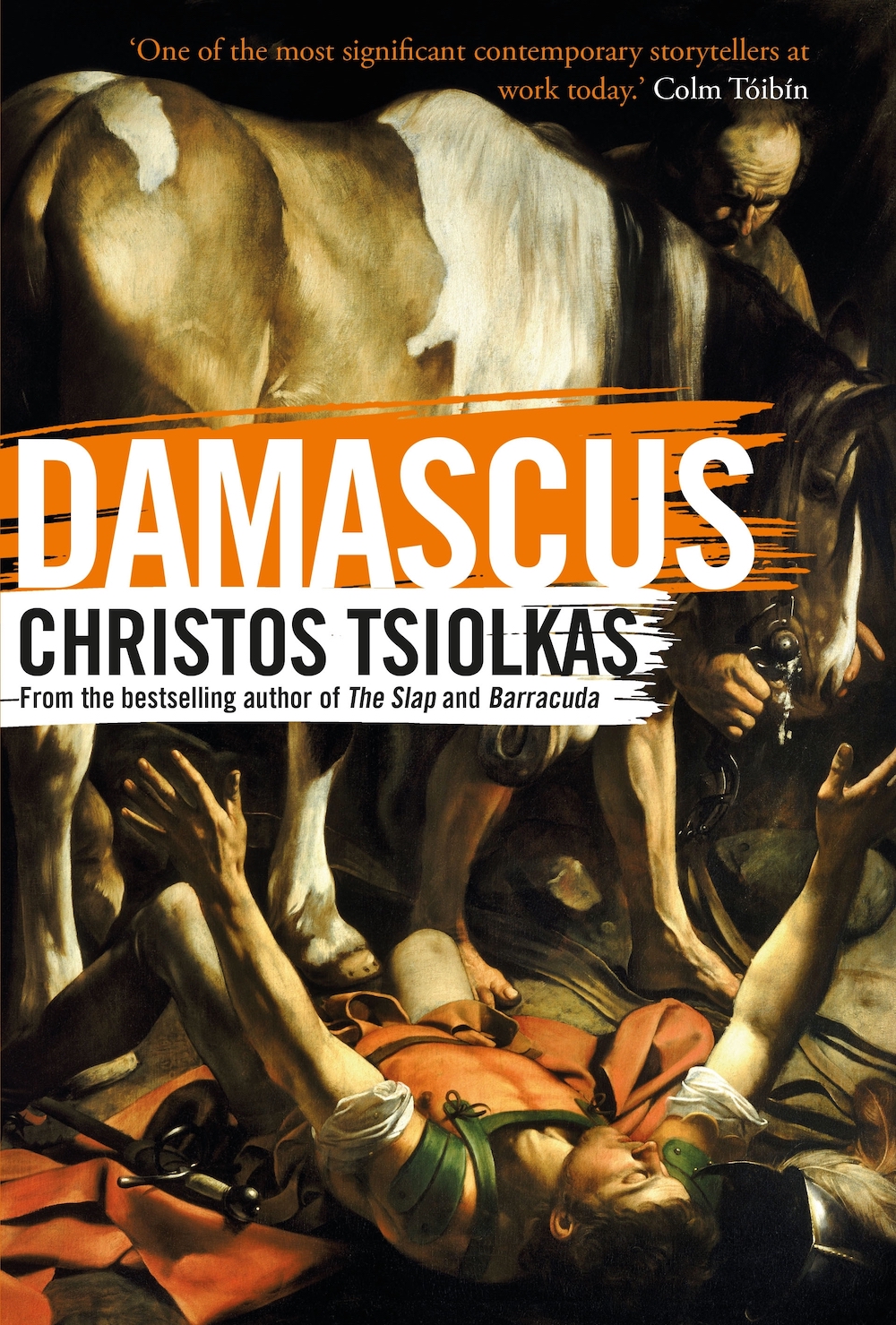To Christos Tsiolkas fans expecting something in the vein of his riveting bestsellers The Slap and Barracuda, the sixth novel by this Australian writer may come as a shock. We're not in Melbourne any more. Damascus is a serious historical enterprise, a biblical and rather heavy-handed one, exploring the story of Saul of Tarsus, later St Paul.
There’s a lot of raw, visceral squalor in this brutal Roman world 35 years after Christ’s death, and the testament according to Tsiolkas is full of stonings, castrations and other ghastly punishments. Damascus addresses questions of class, shame and doubt that are also present in The Slap and his other works and there’s shit, vomit and lust along this Damascene path. But it lacks the lightness of touch and convincing dialogue of those very modern novels.
As well Paul’s voice, Tsiolkas brings us those of Thomas, Timothy, Vrasas, a Roman soldier, and Lydia, who was, apparently, the first non-Jewish convert to Christianity. Tsiolkas sees Paul as a man tormented by his sexual transgressions and his homosexuality before he becomes a follower of the Jewish prophet Jesus, rather than a persecutor (Damascus starts with the stoning to death of a Christian woman who Saul has reported for blasphemy to the Romans).
It’s an uneven, non-chronological read, hopping between 35 and 63 AD in Rome, Antioch, Jerusalem, Galilee and Damascus. Sometimes it’s repetitive, tedious and confusing - especially if your biblical knowledge is sketchy - sometimes violent and compelling, with memorably repulsive descriptions of youthful male beauty turning into hideous old age.
But in spite of high drama and emotion, it's all a bit too formless, declamatory and over-heated, without much variation in tone. Though hardly light relief, Lydia, the previously pagan Greek - her childhood duties at the gods' altars are well described - who almost against her will becomes devoted to Paul when he's working as a servant for her prosperous husband, provides a welcome, though brief, change of scene.
In his author’s note, Tsiolkas says he was turned off the writing of Paul when he was an adolescent because of the “famous strictures against homosexuality in Paul’s first letter to the Corinthians” but that later, in a time of despair in his late twenties, he found solace in Paul’s writings. Since then he’s wrestled with him, on and off, for years, and writing this novel was an attempt to comprehend him.
You can’t help feeling that the story of Tsiolkas’s personal struggle, like Emmanuel Carrère’s in The Kingdom, where he juxtaposed his own search for faith with accounts of St Paul’s missions and letters, might have made for a more engaging book. Some of this wrestling is apparent in the way the novel, always in the present tense, homes in on discussions between Paul and Thomas, or the Twin – Jesus’s twin brother, according to some legends – who doubts (yes, that Doubting Thomas) the resurrection.
Thomas, a much more modern thinker than Paul in Tsiolkas's version, believes that the kingdom of heaven is here on earth and Jesus’s teachings about loving your neighbour are what matters, and that whether he was or was not the Saviour doesn't. He seems to have mixed feelings about his brother the prophet. Near the end of Damascus he remembers him as an "arrogant prick who snubbed us because he was learned and we were still peasants and he was righteous and we were sinners" and whose real love was "being on the road and away from work and responsibility." Bracing stuff.
Paul, on the other hand, is obsessed with the resurrection and eternal life to come. How, he asks, can this miserable world be the kingdom? If the Saviour hasn’t returned, then that’s because people are not yet worthy. Some of these debates make the characters sound like mouthpieces rather than real people. Still, Tsiolkas is good at showing us how outrageous, in those ancient days, these ideas must have been, as was the thought of a Saviour who’d died on the cross like a criminal. Greeks and Romans, whose gods are perfect and merciless, see the followers of Jesus as a part of a “death cult, full of chaste and dickless charlatans”.
Damascus obviously answered a need in Tsiolkas, but that alone doesn't make for a good book. However, there are beautiful passages. “Be as a passer-by to this world, Saul,” says Thomas. “Below this vanity and wealth, there is earth. It dies in winter and is reborn in spring. That is the meaning of resurrection.”
Damascus by Christos Tsiolkas (Atlantic, £16.99)















Add comment